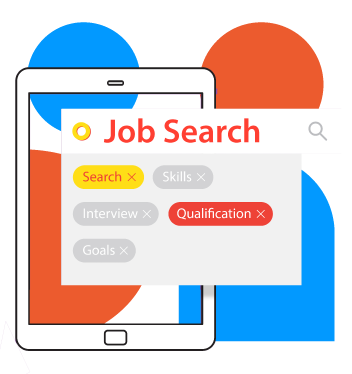Soft skills are all about your ability to connect and work with people and have become increasingly valuable in our inter-connected, remote work world. Hard skills demonstrate your expertise and mastery of a specific, measurable skill or competency. Find out what companies are looking for.
In September 2021, over four million workers quit their jobs in the United States, in a massive spate of employee turnover that is now being referred to colloquially as “The Great Resignation.” Experts predict that it will become a global event; in fact, research by Microsoft showed that 40% of employees worldwide are considering leaving their current roles by the year’s end.
While this is a nightmare scenario for many employers, who are now scrambling to fill vacant positions, the current hiring climate presents an excellent opportunity for job seekers looking to reset, pivot, obtain a better salary, or get a foot in the door. Still, landing a “dream gig” remains a challenge even in a market replete with vacancies.
This is partly because, due to accelerated digitization and automation across all industries due to the pandemic, employers are prioritizing different competencies than they did in the “before times”—and in many cases, struggling to find employees who possess those desirable skills sets. Moreover, the global shift to remote working and digital communication (over onsite work and in-person meetings) has necessitated not only familiarity with more technological platforms than before but also different types of people skills that may previously have been viewed more as “nice to have.”
To help job seekers best position themselves to take advantage of this opportunity and find fulfilling employment, we’ve compiled a list of hard skills (technical, measurable competencies) and soft skills (socio-emotional competencies) that are in demand for companies worldwide. Furthermore, the skills in this list are “evergreen”—that is, they are future-proof and will continue to be in demand in years to come.
Hard Skills
1. Data analytics and management
The quantity and quality of big data are ever-increasing, and companies are looking for people who can organise, manage, analyze, and otherwise handle their data needs. As a result, data science degrees are on the rise. But beyond such dedicated degrees, companies are also looking for folks with the competence necessary to support their information governance needs—that is, ensuring data security, privacy, and ethical use.
2. User Research
User research is a relatively dry but essential term that refers to the systematic study of product users’ behaviours and attitudes. This information is vital in product design in that it exposes users’ needs, problems, and desires, with the goal of creating a product that will be broadly adopted. Using qualitative and quantitative research (here’s that big data, again), User Research experts surface information that contributes to market trends and informs product design in every industry.
3. UX/UI Design
User Experience (UX) and User Interface (UI) are interrelated design principles that are regularly confused; UI refers to the aesthetic appeal (typography, images, how it looks when being used), while UX refers to the user’s experience with functionality and flow when interacting with the product. A product’s UI can certainly impact its UX; as a result, there is substantial overlap in these skill sets. Companies are showing insatiable demand for folks who possess UX/UI Design skills, having determined that this competency is indispensable in creating any desirable technological tool.
4. Cloud architecture
Cloud computing refers to on-demand access to various computer resources without active management (applications, storage, processing power), and cloud architecture is the IT infrastructure required to support cloud computing. Companies will pay for SaaS, and cloud architects will figure out how to integrate this service with a company’s legacy systems and build and maintain its components—back end and front end platforms, delivery mechanisms, and network.
5. Programming
Since the adoption of computers, programming has been an in-demand skill. Now, with the increasing availability of SaaS platforms, personal apps, and all types of large and small-scale digital tools, the need for skilled programmers has only increased across every industry. Programming languages such as Python and JavaScript are staples of startups, Java and PHP are “hot in the corporate world,” and MATLAB is big in data analytics.
A candidate who knows not one but multiple programming languages will be highly desirable to recruiters. And, programming languages are incredibly accessible; candidates can pick up these languages in certificate programs without a four-year university degree.
Soft Skills
1. Agile mindset
Agile methodology is both a mindset and a behaviour system. The agile mindset involves understanding, learning, collaborating and staying flexible, particularly within a team dynamic. The central tenets of this mindset are respected for all team members, an organised and sustainable flow, and a focus on team innovation and improvement.
This mindset evolves into a constant cyclical collaboration with stakeholders through planning, executing, and evaluating the finished product in project management. Employers across all industries are chomping at the bit for people who can work collaboratively, flexibly, and systematically (thus minimizing the need for intra-office training in this area.)
2. Facilitation ability
Facilitation is the art of guiding a group of people through a learning process, including activities, discussions, planning sessions, and feedback. Rather than teaching as a “sage on the stage,” the facilitator is a neutral participant who helps to push the learners through their objectives gently. They remain both neutral and engaged throughout the process, working with learners at their own pace. Facilitation is a highly sought after skill-set, particularly for companies who would like to create and implement in-house training or enable peer-to-peer learning.
3. Willingness to learn
New things can be intimidating–new projects, new workflow, new co-workers–but probably none of these sparks as much anxiety and resistance as new technologies. Since the advent of the Crown typewriter disrupted quill pen usage, and probably before, employee hesitance to adopt new technical tools has been the bane of employers everywhere. Thus, they’re looking for employees who are excited (or at least accepting) about the prospect of learning new skills–particularly as new SaaS offerings and integrated systems replace legacy software that is on their way to obsolescence.
4. Good communication skills
Being a great communicator has always been a desirable skill. However, with the accelerated adoption of digital communication platforms throughout the pandemic (due to everyone working remotely), communicating–both in writing and over a screen effectively–has gained particular importance.
Top communicators can be counted on to craft well-written, clear, concise emails. They stay calm and remain on topic when speaking. And, they stay available–they respond in a reasonable time-frame to calls, emails, and messages on Slack, Skype, Teams, or whatever digital platform their company is using.
5. Remote work skills
As household name companies declare that remote work is here to stay, it’s becoming clear that what was once a feature of pandemic employment is now the norm–or at least, hybrid models (where employees work part-time onsite and part-time from their hammocks in Bora Bora, obviously.) With this in mind, companies are eager to find employees who know their stuff and can work efficiently, stay organised, remain in communication, and meet deadlines…without a lot of supervision or micro-management.
The takeaway
Job-seekers can sometimes view a list of “desired skills” in a job posting and become discouraged by a mistaken impression that they must immediately learn every new technology on the market to be desirable to recruiters. In fact, learning even one new skill can improve future job prospects. Increasingly, businesses are looking to codify their most in-demand skills and upskill and reskill their workforce in-house, a proposition that adds value to the employees and the company itself.
Pursuing opportunities to learn new skills, either in anticipation of a job search or to become a better-skilled employee, can yield more satisfying, better-paying work and job security for an entire career. And for the very fortunate amongst us, the chance to work from a tropical destination. If the last year has demonstrated one thing, it’s that anything can happen!







